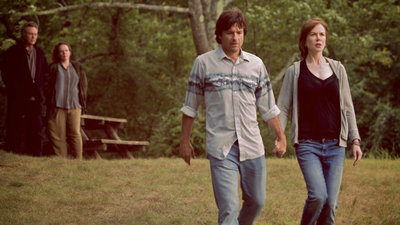
Jason Bateman was that kid in high school everybody pretty much liked — the vice president of the student body who ran track and dated not the prettiest but easily the coolest cheerleader, and who was on friendly terms with jocks and stoners alike (although secretly preferring stoners).
And yet, something about the guy strains against his better angels, as though being nice just isn’t cutting it. His mean streak is only a centimeter wide, but when he finds it, it’s like coming home.
In Bateman, the qualities of pained charm and repressed hysteria reach an uncomfortable apex that recalls Jimmy Stewart at his nervous best. As an actor, he (like Stewart) regularly plays the off-kilter Everyman, forever sandwiched between appeasement and despair. In his role as Michael Bluth on Arrested Development, Bateman was the beleaguered emotional diplomat, the over-achieving son frantically scrambling to hold together a family whose dysfunction reached into realms of sublime absurdity.
And as a director, Bateman has shown a knack for handling material that transgresses mere dysfunction into the realm of cruelty. In his debut film, the hilarious and surprisingly touching Bad Words (2013), Bateman directed himself as a nasty, guarded man — the asshole with a broken heart — who wrangles his way into a national spelling bee, all to prove a rather Freudian point about his difficult childhood.
In his latest movie, Bateman and Nicole Kidman play the adult children of Caleb and Camille Fang (Christopher Walken and Maryann Plunkett), eccentric artists whose shocking public-performance stunts in the 1970s all but exploited their offspring as props (they referred to them as “Child A” and “Child B”). Now, as the grown Fang siblings, Annie and Baxter are tangled in a family history from which they desperately struggle to extricate themselves: Annie’s movie career is going off the alcoholic rails, and Baxter is losing steam on his third novel.
When the Fang parents disappear in a shocking act of violence, the Fang kids are brought up hard against their difficult past: Was it murder, or just another performance piece? Are they finally free of their parents’ suffocating influence, or should they set about on solving the mystery of their disappearance?
In The Family Fang, questions of self-liberation and self-actualization are set against issues of dysfunction and filial abuse, all of it amplified by the extravagant sacrifices of “creating art.”
The film is far from perfect, but it casts a nefarious spell thanks in part to Bateman’s direction, which pulls the audience into a claustrophobic universe of deep shadows and tight angles that gives the impression of eavesdropping on your really fucked-up neighbors. Kidman is better than she’s been in years, and Walken is a natural fit as a domineering father obsessed with making life itself a work of art (a dubious project, and central to the film’s fascinating tensions). Plunkett is sharp as a woman torn between fidelity to her husband and a desire for artistic independence.
Ultimately, however, it is Bateman’s performance that unifies this somewhat uneven movie, which trips too falteringly into its third act, like a novel that suddenly decides it’s a short story. As a son struggling to break free and find his voice, Bateman gives this jagged narrative a solid through-line of agony and deliverance. It’s his best performance yet, and further evidence that, as an actor-director slouching toward cinematic grace, he might be the best inheritor of Woody Allen’s chair.
The Family Fang opens Friday, May 6, at Broadway Metro.